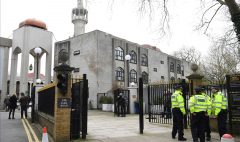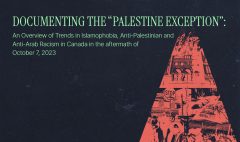The climate of fear around Canadian Muslims needs to go. Here’s one powerful antidote to Islamophobia
October 10, 2024 2024-10-15 13:13The climate of fear around Canadian Muslims needs to go. Here’s one powerful antidote to Islamophobia
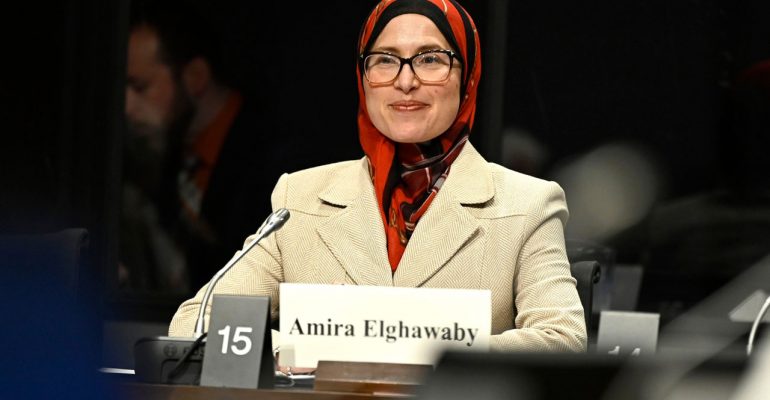
The climate of fear around Canadian Muslims needs to go. Here’s one powerful antidote to Islamophobia
Opinion by Amira Elghawaby
For the past 16 years, filmmakers, producers, comedians, authors and artists have been descending upon Edmonton, Alta., for the annual Mosquers Film Festival to celebrate the power of storytelling.
This year, six short films made both in Canada and internationally made the cut and demonstrated the vast range and vibrancy of Muslim experiences.
They ranged in topic and genre. There was a comedic take on workplace discrimination; a dramatic representation of the impact of violent police responses to mental health crises; a documentary exploring the challenges and successes of four Syrian refugees in Calgary; and a mixed media portrayal of struggling with culture and Black hair.
What was remarkable about the event was how Canadian Muslims continue to reclaim their identities, proudly and unapologetically sharing their stories with local, national and international audiences.
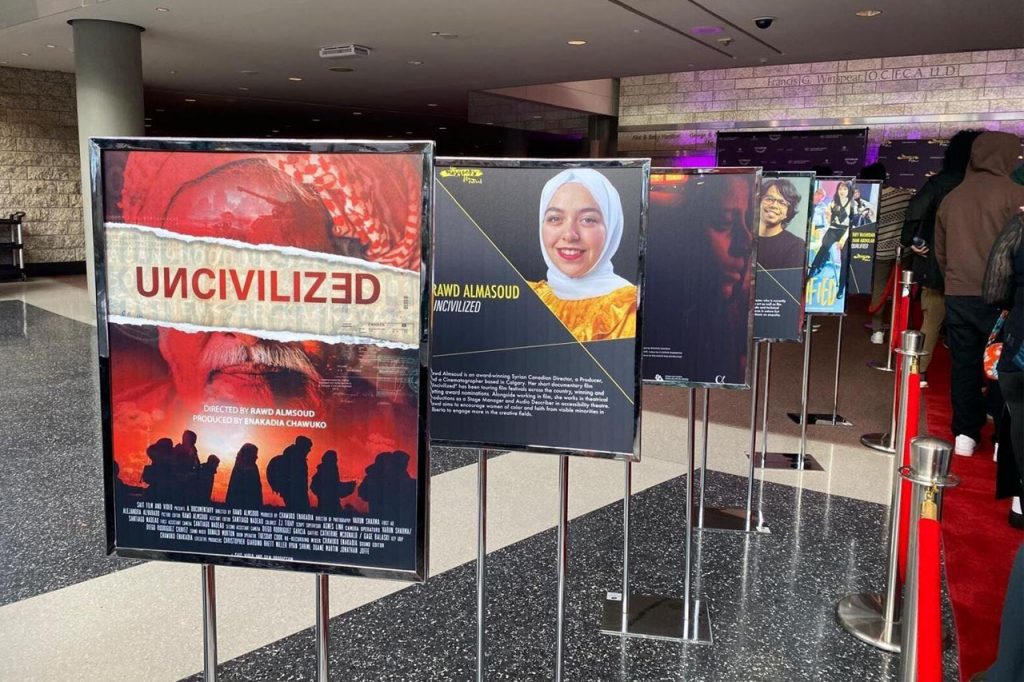
Through such storytelling, Muslim cultural producers are either deliberately or inadvertently combatting Islamophobia by showing how unidimensional portrayals of Muslims as monolithic, violent, oppressive, insular, and opposed to Western democratic norms and values, are simply false and detached from reality.
Many of the festival’s creatives and audience members would have grown up in the shadow of 9/11, a time when “. . . Muslims were increasingly perceived as dangerous and their religious identities racialized,” as described by researcher and academic Baljit Nagra in her 2017 book, “Securitized Citizens: Canadian Muslims’ Experiences of Race Relations and Identity Formation Post 9/11.” Nagra documented how young people felt a loss of a sense of safety, security and belonging, living in a “climate of fear.”
For many, it feels like that climate of fear is back.
Hate crimes against Muslims are up, according to Statistics Canada, which noted a 94 per cent increase in 2023, along with a 52 per cent rise in hate crimes targeting those of Arab or West Asian descent. Cases of anti-Muslim hate, bias and discrimination have also increased, according to civil society organizations.
Many Canadian Muslim youth, along with older generations, are once again experiencing an “othering” that threatens their sense of home.
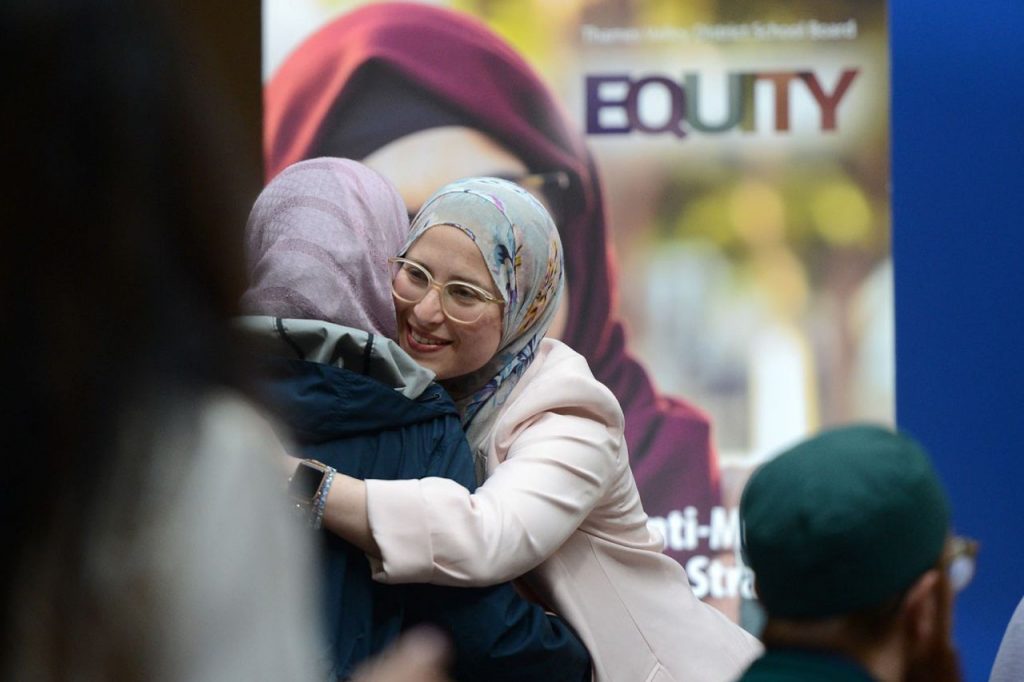
The devastating Islamophobic killings of 11 Canadian Muslims between 2017 and 2021, the highest number of any G7 country, spurred urgent action. These attacks led to federal, provincial and municipal efforts to respond to communities’ fears and anxieties ranging from raising awareness on how to report hate crimes, investing in anti-racism initiatives, and incorporating anti-Islamophobia strategies in education.
Yet, over the past year, hateful, anti-Muslim discourse has become more prevalent than ever. Since Oct. 7, 2023, the U.K.-based Institute for Strategic Dialogue, as well as researchers in Australia and Belgium, have tracked an increase of at least 400 per cent in Islamophobic content online, along with rises in antisemitism anti-Palestinian and anti-Arab hate.
One example: a recent AI-generated anti-Muslim and anti-immigrant video garnered over half a million views on YouTube before the associated account was closed.
Furthermore, as Chad Haines noted in the recently published book of essays, On Othering: Processes and Politics of Unpeace, “the ‘Islamophobia industry’ inspires acts of hatred against Muslims by producing and circulating vitriolic anti-Islamic messages. The industry comprises layers of actors who feed one another, creating a greater sense of legitimacy, at least in their eyes, and self-righteousness.”
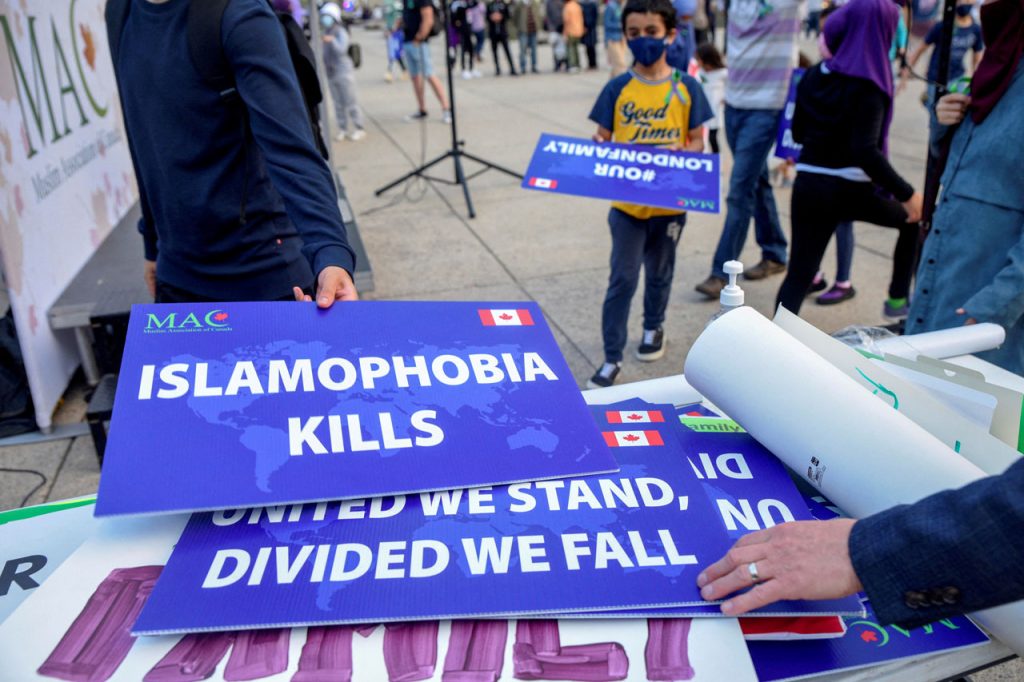
Also troubling: reports of potential foreign interference in which Islamophobic misinformation campaigns have targeted Canadians, along with widespread polarization.
The federal government is working on solutions, tabling Bill C-63, the online harms act, as well as recently launching the Canada Action Plan on Combatting Hate. The plan includes the Changing Narratives Fund which is dedicated to supporting Indigenous, religious and racial minority journalists, creators and organizations.
Beyond legislation and public policy, storytelling persists as a powerful grassroots antidote to hate. October is Canadian Islamic History Month, so there’s no better time to start challenging assumptions and becoming better acquainted with generations of Canadian Muslims and their stories.
Source: Toronto Star
Related Posts
East Renfrewshire crime: Muslim girl ‘attacked’ walking home from Scottish school as police probe ‘hate crime’
Muslim leaders say Quebec report on secularism is discriminatory
Austria plans to ban girls under 14 from wearing the hijab
UK Muslims targeted in plot that barely made headlines
York University report warns anti-Palestinian racism, Islamophobia on the rise in Canada
Search
Categories
- Academic Centers (104)
- Art & Culture (27)
- Articles (29)
- Books (146)
- Call for Papers (7)
- Dissertations (14)
- Hopes & Challenges (96)
- Innovative Ideas (48)
- Inter-religious Centers (12)
- IRIC News (21)
- Islam & the West Newsletter (7)
- Islamic Centers (12)
- Islamic Institutes (5)
- Islamic Organizations (2)
- Islamic Projects (44)
- Islamic Schools (3)
- Islamic Seminaries (2)
- Islamic World News (891)
- Islamophobia (304)
- Journals (27)
- Media Framing (39)
- Mosques (3)
- Muslim Youth (18)
- News Articles (19)
- Other (33)
- Recent Publications (217)
- Religious Centers (69)
- Reports (91)
- Scholarships (5)
- Success Stories (48)




